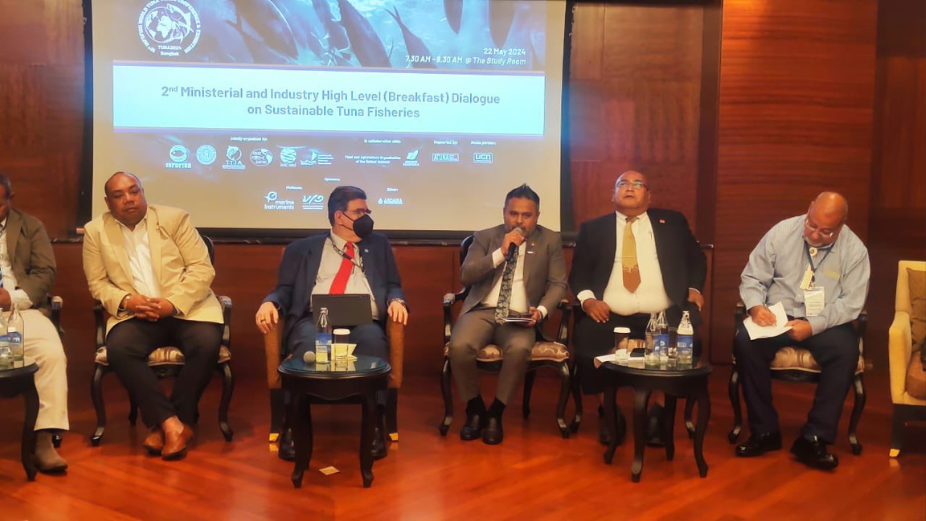
Minister of Fisheries and Ocean Resources Ahmed Shiyam recently participated in the Ministerial and Industry High-Level Dialogue on Sustainable Tuna Fisheries, held on the sidelines of the Infofish World Tuna Trade Conference and Exhibition. This prominent event, renowned for its focus on the global tuna industry, brought together key stakeholders to discuss pressing issues and future directions for sustainable tuna fisheries.
During his address, Minister Shiyam emphasised the critical need to dismantle barriers to market access for tuna products from developing countries, with a particular focus on small-scale fisheries. He highlighted the challenges faced by these nations in competing against large industrial fleets, stating, “Maldives and other developing states have to compete with large industrial fleets, and we are failing miserably. It is high time that we join hands and work collaboratively to create a level playing field, ensuring equitable opportunities for all stakeholders in the global tuna trade.”
The minister also drew attention to the detrimental effects of illegal, unreported, and unregulated (IUU) fishing, which disproportionately impacts small-scale fishers and coastal communities. “This notorious practice undermines the livelihoods of countless fishers and coastal communities. It also undermines the efforts of responsible fishers, particularly in coastal states like the Maldives, where we have made several sacrifices to ensure that the sustainable culture of fishing is maintained through generations,” Minister Shiyam remarked.
In his speech, Minister Shiyam outlined the Maldivian government’s ongoing efforts to combat IUU fishing through enhanced monitoring, surveillance, and a strengthened fisheries framework. These initiatives aim to protect the livelihoods of local fishers and ensure the long-term sustainability of the country’s fishing industry.
The Infofish World Tuna Trade Conference and Exhibition serves as a pivotal platform for tuna-producing and exporting nations, industry leaders, and international organisations to engage in meaningful dialogue and foster collaboration. The conference addresses a wide range of topics, including market trends, sustainability practices, and technological advancements in the tuna industry.
This year’s dialogue saw the participation of ministers and high-ranking representatives from major tuna-producing and exporting nations, underscoring the global importance of sustainable tuna fisheries. The collective efforts and shared insights from such gatherings are crucial in shaping a more equitable and sustainable future for the tuna trade.
Minister Shiyam’s call for collaboration and equitable opportunities resonates with the broader goals of the conference, highlighting the need for a unified approach to overcoming the challenges faced by small-scale fisheries and ensuring the sustainability of the global tuna industry.











